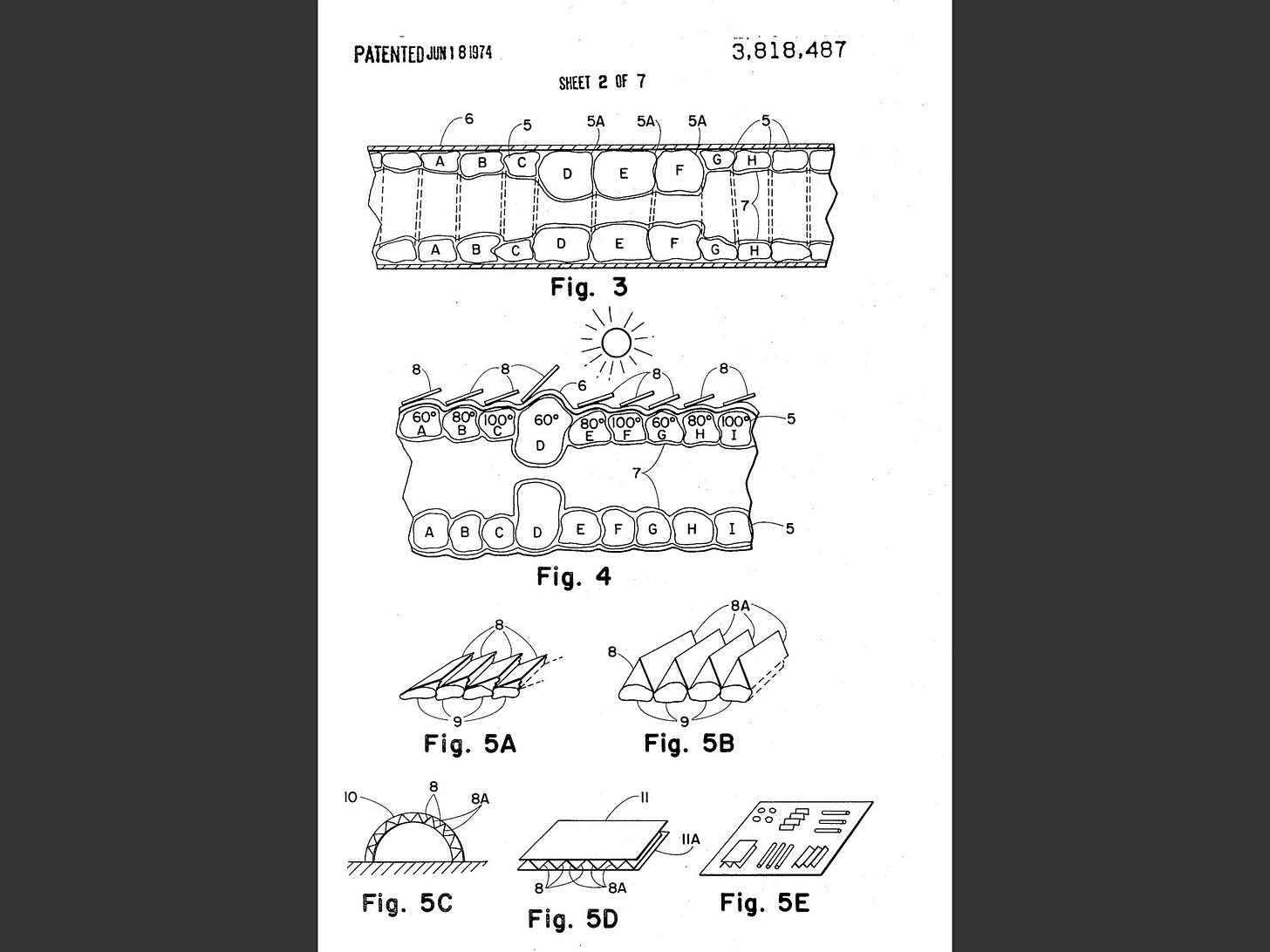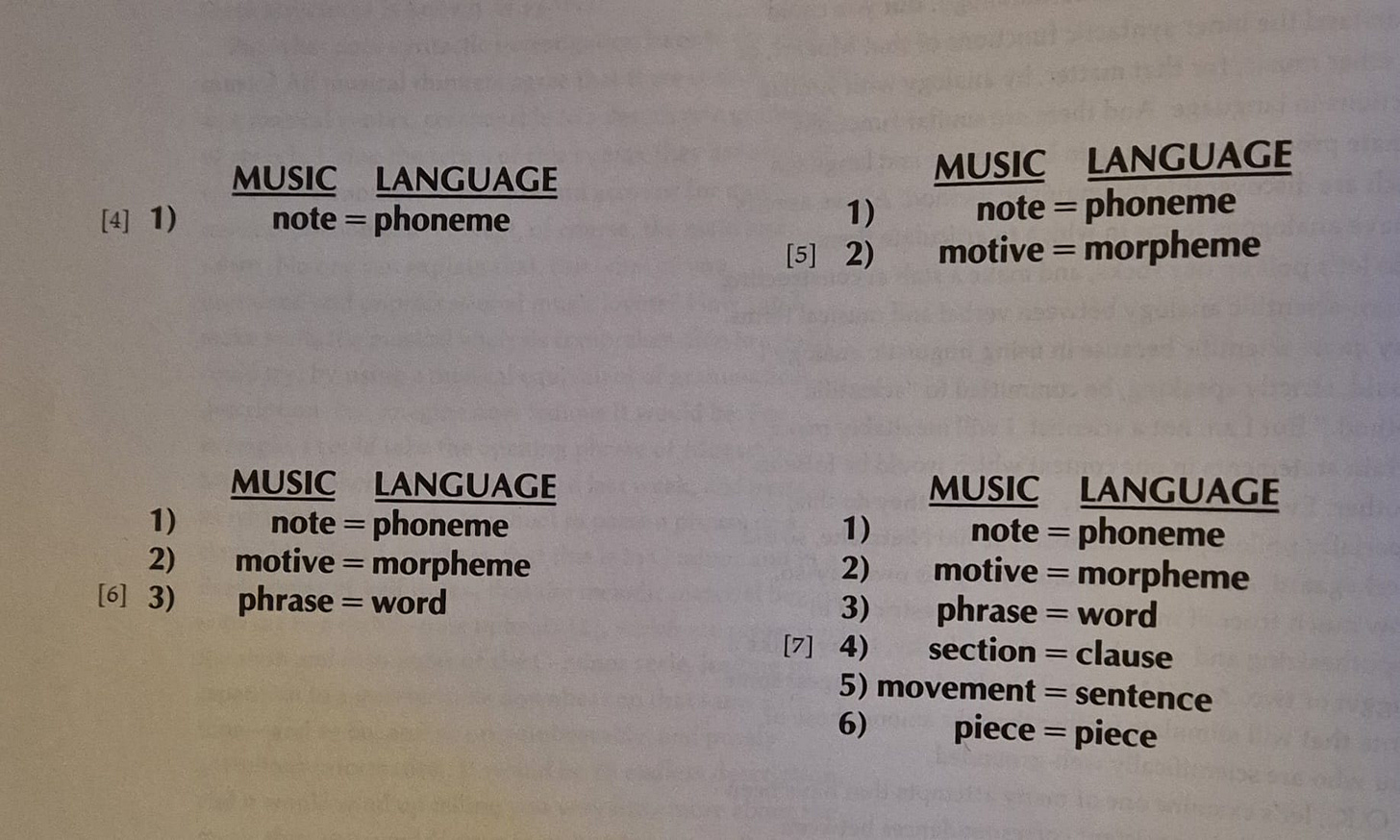✘ Recalibrating our digital system
And: The beautiful crushing act of expression; AI, Heidegger and Evangelion; Fan-Industrial Complex; Reclaiming culture in cultural policy; Timbaland's AI artist TaTa
Two major elements have shaped our current digital system: 1) if-then, or Boolean logic systems; 2) A kind of Cartesian dualism that pervades all our thinking, such as software vs hardware or human vs machine or human vs animal. The premise of Boolean logic is that it’s either one or the other. The gate opening to 0 means the gate to 1 closes. Quantum computing challenges this notion by opening up the possibility of having 0 and 1 at the same time and in parallel across potentialities. Until this becomes more prevalent - or takes less computing power and cooling power to run - we can already recalibrate how we understand our relationship to digital systems. It’s especially significant to do this using creativity as a starting point.
Cybernetics and homeostasis
Earlier this year I wrote a piece where I argued to stop talking about emerging technologies but instead call them advanced technologies. The reason for this was twofold. First, it’s an example of the power of the metaphor and the words we use to talk about technology. The impact of these words carries far and deep into how we use technologies. Second, I spoke of the prospect of reconfiguring how we engage with tech more generally. This is another step towards that. To take that step, we need to understand where we come from.
There is a parallel universe where we don’t end up in a world based on Cartesian dualism and techno-determinism. This world has the same starting point as our current digital system but shifts focus towards forms of embodiment. In it, we understand intelligence differently. These two worlds are linked together through the development of technology, and computer science specifically, in the mid-20th Century. In its own form of duality, research and development moved from cybernetics to AI.
Cybernetics took a holistic approach to thinking about technology. This allowed researchers and practicioners alike to understand matter and information as two interconnected subjects. To understand this approach we can take a look a practical example. Evgeni Morozov explored the Environmental Ecology Lab in his podcast series A Sense of Rebellion. The whole series is worthwhile as it digs into many of the macro political and economic layers as well. For now, I’ll focus on the lab itself. In an 18 month period they made some prototypes to showcase a different type of technology and information science. From their manifesto:
“Prior to the technological development of “self-organizing systems,” the benchmark of scientific validity was the demonstration that a measurement could be repeated or that a process could be performed quite irrespective of the purposes to which the measurement or the process might be put. Truth was thought something to be established and it existed in some “holy, high, eternal noon.” Searchable. But somehow irrefutable.”

To materialize this, which mostly didn’t result in working or operational products, they wanted to build things like: “a system which would allow you to hold hands at a distance.” They called this an ecological approach but it was rooted deeply in the cybernetic thinking of decades prior. In the words of the artistic researcher and creative technologist Simon Penny:
“Cybernetics was interested in systems … It was concerned with the interaction of an agent or artifact with its environment. Such agents were understood to sense and act in feedback loops, to adaptively stabilize their relation to the world, seeking homeostasis.” (Making Sense, p.89)
This is very different from the dualist nature of software-hardware or simple Boolean logic and if-then relationships. The latter has given us some fantastic music through the development of synthesizers and much more. However, it’s also pushed us away from a more direct engagement with our environment.
AI and linguistics
As we reached the late 1960s and the time of the Environmental Ecology Lab, the dominant thinking in computer science was AI and predicated by the move from analog to digital. In that sense, what the E.E.L. did was going against this dominant grain. Thinking and reasoning got caught in a conception where intelligence equaled reasoning. Music, from pop to classical, suffered similar pressures. Leonard Bernstein, for example, spent time in the early 1970s giving lectures at Harvard with the aim to find proof that music has a global grammar.
He got caught, however, thinking through some of the prevalent concepts of the time. In his first lecture he tries to use linguistics to compare music to language. He searched for terminology that would allow us to bring language into contact with music. While a valiant attempt to make musicology available to a multidisciplinary audience, it also captured music in this concept of reasoning over forms of adaptation. Music is a symbolism, but it also defies symbolism. Using linguistics to help capture those symbols is a similar move to using logical reasoning to show that grammar is what gives meaning to formless symbols of words.
There’s logic here, for sure, but it also is what led to AI scientists focusing heavily on what was called generative linguistics. This, together with the software-hardware dualism brought Penny to argue that: “The move to symbol manipulation retreated from engagement with the world” [Making Sense, p. 92]. Cybernetics asked of us, humans, to directly engage with the world around us. AI, simply by its meaning - artifical intelligence - asks of us to understand the world as a computer. It diminishes our brain activity to simple logic of a binary nature.
This is still what our digital systems are built around. There’s a disconnect between digital machine and human embodiment. The gray zone is where these elements intersect. Music will always bring us there, because there’s an inherent embodying going on when we make or hear music: rhythm, melody, etc. make us move.
Sensing = intelligence
To recalibrate our digital system, we need to reconceptualize quite a lot. We also need to force-switch on some fundamental assumptions and preconceptions for which the groundwork was laid at least 70 years ago. The literary critic Katherine Hayles has pointed out that:
“The point is not only that abstracting information from a material base is an imaginary act but also, and more fundamentally, that conceiving of information as a thing separate from the medium instantiating it is a prior imaginary act that constructs a holistic phenomenon as in information/materiality duality.” (How we became posthuman, p. 13)
Instead of this understanding this duality of information and materiality, we need to understand that intelligence is more than logical reasoning. It’s all about sensing the world around us. Technology can help us grow these skills, for sure, but it’s a different kind of tech than we mostly have around us now. Music, by its very nature, asks of us to engage with the world around us. We can’t close our ears - as much as we try with our noise cancelling headphones - and immediately respond to a march music. Bernstein was right there music has a global grammar, but it’s not a grammar it’s a sensation. In recalibrating our digital system, we can shift our focus to embodiment and reach the point where we know that intelligence is adaptation and the power of sensation.
LINKS
🥶 The beautiful, crushing act of expression (Sound of Fractures)
“Each person’s journey with their creative self and how that develops is so deeply complex and unique to each individual. But the emotions—the joy, the heartbreak, the confusion—are all shared experiences. I often wonder why the expectations placed on us by what we think success is, ends up framing it as a challenge, rather than a spiritual journey.”
✘ It’s basically another example of a dualist thought process gone wrong. It’s probably why Japanese has better words to describe these things than English does. Less dualist history of ideas. It’s important to talk about this and to find those ways of expressing that better meet the needs of a creative work and the person(s) behind it.
🌧️ AI, Heidegger, and Evangelion (Tina He)
“Unlike obvious automation in spreadsheets or homework grading, which we view as mechanical drudgery and are happy to offload, AI-generated prose attempts to inhabit domains we instinctively associate with authentic subjectivity: observation, memory, yearning, regret. When an LLM “describes the rain” or tries to evoke loneliness at a traffic light, it produces language that looks like the real thing but does not originate in lived experience.”
✘ I tend to think we have the same in music, and then I think back to the piece Gareth wrote for MUSIC x earlier this year about context. We dislike music purely generated from Suno or Udio, we think. Until the context is there to maybe appreciate it.
💡 The Fan-Industrial Complex (Zoe Scaman)
“We’re witnessing a seismic flip:
IP is no longer a fortress. It’s becoming shared infrastructure.
Fandoms have gone from subcultures to just… culture.
Fans aren’t your audience anymore. They’re your collaborators. Your quality control. Your distribution. Your future.”
✘ This is such a great presentation from Zoe, I encourage you to click through and check out the entire slide deck. It’s brilliant and full of inspiration.
📦 Reclaiming culture in cultural policy? (Culture Policy Room)
“Imagine if the cultural dimension of cultural policy were not simply placed on equal footing with its social, economic, environmental, and external dimensions - but recognised as the foundation. Like fertile soil, it is what enables all these other contributions of culture to take root and flourish. Cultural policy, then, would no longer be instrumentalised to serve external goals alone, but would stand on its own terms, focusing on enabling artists and art to thrive.”
✘ Yes, please. And besides the policy side and political pressure and advocacy, we also need different funding models to take root and flourish, too. Ones that also focus on enabling artists and which still generate decent returns on both investment and culture.
🌂 Legendary Producer Timbaland's Next Artist Will Be AI-Generated (Keith Nelson Jr.)
“There’s no word on when TaTa’s first single will be released, but the Stage Zero team plans to make her seem as real as possible. The AI artist will have a social media presence, and the company has already has released a photo of a young, pink-haired female artist meant to be TaTa.”
✘ There’s just nothing ground-breaking or new happening here. It shouldn’t even be newsworthy and yet here I am, posting it. I’m sorry. But if having a social media presence and some music on DSPs equates ‘as real as possible’ then we need to move even harder into what I described in my piece above.
MUSIC
Kathryn Joseph’s new record is out. It’s called WE WERE MADE PREY. It is, once again, a harrowing and visceral experience to listen to. The combination of her voice, the music, and the production really work to grab you at your most tender place. Then, she pulls and allows you to feel all your pain. It’s beautiful.





"Interpretation is the revenge of the intellectual upon art” - Susan Sontag.
There is no such thing as Artificial Intelligence. It’s just billions of if/then statements. You’ve read Minsky, I assume.